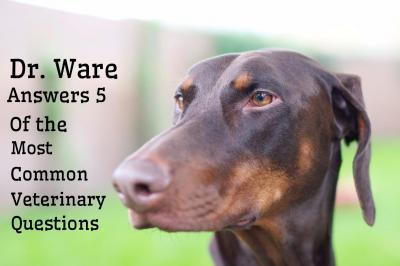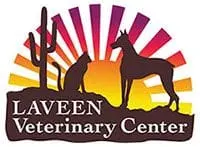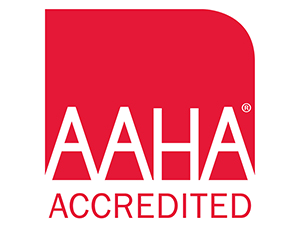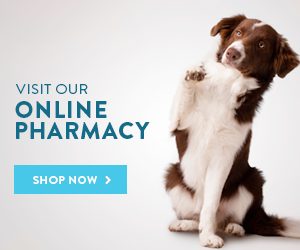
1. How can I get my dog to stop shedding?
The quick and easy answer is you cannot stop a dog or cat from shedding. In these animals the turning over of hair is a normal cycle, most commonly regulated by seasons and the environment - changes in temperature and ambient light. The brain receives these signals, then triggers different cycles of the hair follicle. Although many shampoos and products are marketed to “reduce” shedding, the best strategy to take is weekly bathing (with any pet friendly shampoo) and 15 minutes of fur brushing before and after the bath.
2. What is the best dog food out there?
Well, I hate to say it, but this is a very subjective answer. The reality is, there are many good foods available, but there are also many poor quality foods out there too. I would say the best indicator of the QUALITY of your dog’s food, is your dog’s healthy. Is your dog at an optimal weight, how is their coat, how is their energy level and how are their “GI habits?” I will also for-warn consumers that marketing from companies is very successful in making you believe that your dog needs a specific food. Talk to your vet! And probably not the salesperson in the pet store, (more expensive does not always equal better food) about what are the best diet options for your pet.
3. What are anal glands and what is that SMELL?!
The anal glands are two glands that sit at about 4 and 8 o’clock in relation to the anus. These are scent glands that should excrete gland material with each defecation. For our domesticated animals these glands serve no purpose but to causes us and your pet problems! Anal glands should not be expressed unless the glands become plugged or infected. Not all animals need the glands expressed, actually most do not need them expressed regularly. Some people ask, if they don't need them, then why don't we have them surgically removed? Well, surgery to removed the anal glands is typically only performed if the glands are chronically a problem - this surgery is very delicate - important nerves that function to maintain continence are in this region!
4. Why is my dog eating poop, is there a deficiency in his diet?
Mostly likely not. Coprophagia (the consumption of feces) is most commonly a behavior that is learned or established from a young age. With commercial diet standards now, this is unlikely a dietary or nutritional deficiency. We can attempt to break this habit by removing the ability for your dog to consume feces (clean up all eliminations immediately) and trying specifically formulated food additives to make the feces taste bad (ask your vet about these specific products).
5. Why does my pet’s breath smell SO bad?
The foul odor from your pet’s mouth comes from bacterial growth and accumulation within plaque and tartar that is adhered to the surface of the teeth (crowns) and under the gumline (gingiva). Daily brushing with a pet safe toothpaste will help to prevent tartar formation along with feeding a kibble style dry food, sometimes these foods also have dental enzymes that may help to prevent tartar as well. During routine physical exams, your veterinarian will assess the crowns for evidence of tartar and the gumline for evidence of gingivitis. Depending on the degree of dental disease, a prophylactic dental scaling and polishing may be recommended to clean the teeth and under the gums.


